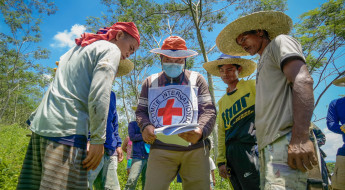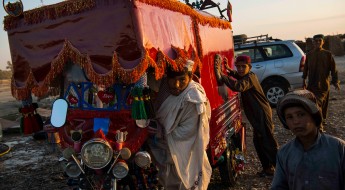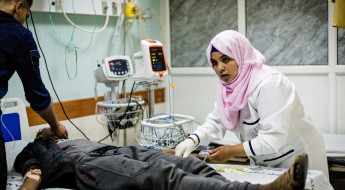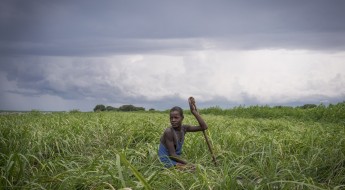Afghanistan: New children's ward at Mirwais Hospital already overcapacity
 Pediatric ward of Mirwais Hospital in Kandahar, AfghanistanNasir Ahmad, 5 years old, has thalassemia. He is getting ready for his regular blood transfusion, which he needs every five weeks. According to the doctors, the life expectancy of children suffering from thalassemia in Afghanistan is about 15 to 20 years. This is because few health facilities provide this service, the families affected often do not understand the disease and there is no national programme to tackle thalassemia.CC BY-NC-ND / ICRC / Thomas Glass
Pediatric ward of Mirwais Hospital in Kandahar, AfghanistanNasir Ahmad, 5 years old, has thalassemia. He is getting ready for his regular blood transfusion, which he needs every five weeks. According to the doctors, the life expectancy of children suffering from thalassemia in Afghanistan is about 15 to 20 years. This is because few health facilities provide this service, the families affected often do not understand the disease and there is no national programme to tackle thalassemia.CC BY-NC-ND / ICRC / Thomas Glass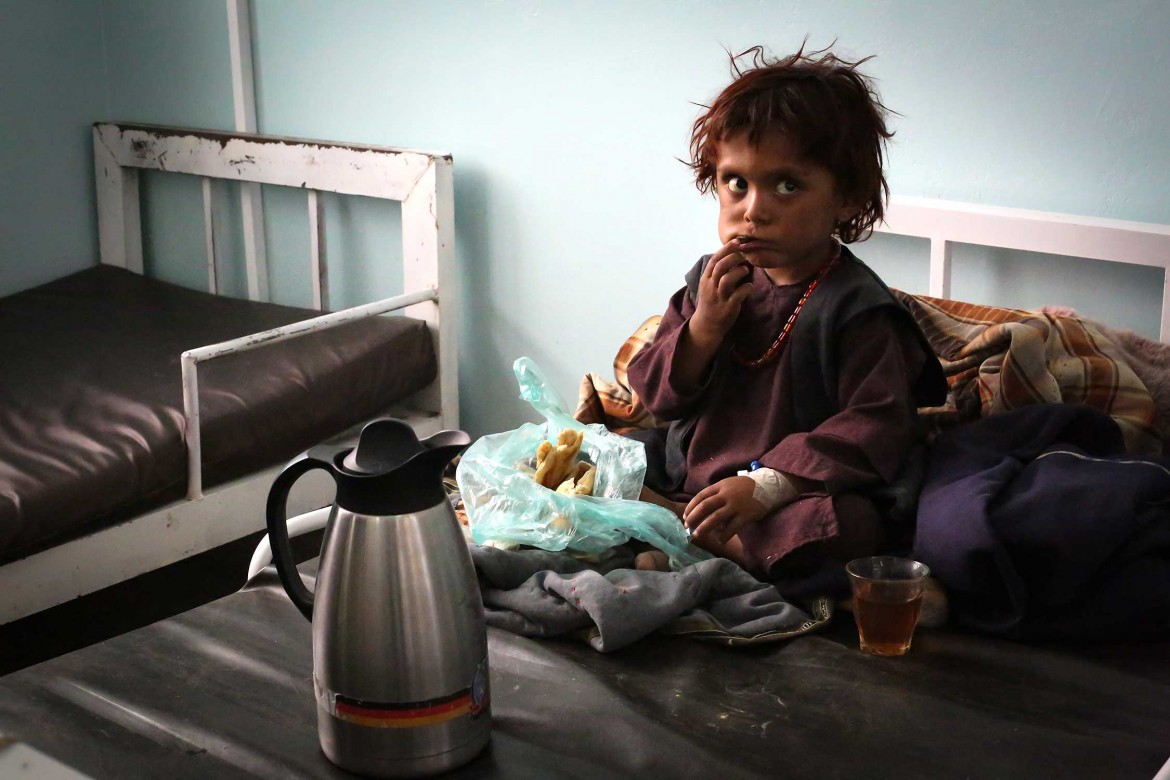 Mirwais Hospital in Kandahar, AfghanistanNajibullah, 5 years old, from Uruzgan, enjoys a little lunch break. He suffers from nephrotic syndrome affecting his kidneys. He was referred here because the doctors in Uruzgan couldn’t manage his problem.CC BY-NC-ND / ICRC / Thomas Glass
Mirwais Hospital in Kandahar, AfghanistanNajibullah, 5 years old, from Uruzgan, enjoys a little lunch break. He suffers from nephrotic syndrome affecting his kidneys. He was referred here because the doctors in Uruzgan couldn’t manage his problem.CC BY-NC-ND / ICRC / Thomas Glass Mirwais Hospital in Kandahar, AfghanistanZabiullah, 2 months old, sleeps while recovering from bronchiolitis, a respiratory infection affecting hundreds of babies every season.CC BY-NC-ND / ICRC / Thomas Glass
Mirwais Hospital in Kandahar, AfghanistanZabiullah, 2 months old, sleeps while recovering from bronchiolitis, a respiratory infection affecting hundreds of babies every season.CC BY-NC-ND / ICRC / Thomas Glass Mirwais Hospital in Kandahar, AfghanistanSuleiman Shah, 5 years old, had severe meningitis with haemorrhagic problems. He is recovering well.CC BY-NC-ND / ICRC / Thomas Glass
Mirwais Hospital in Kandahar, AfghanistanSuleiman Shah, 5 years old, had severe meningitis with haemorrhagic problems. He is recovering well.CC BY-NC-ND / ICRC / Thomas Glass Mirwais Hospital in Kandahar, AfghanistanA young patient is all smiles upon seeing the paediatric nurse arrive.CC BY-NC-ND / ICRC / Thomas Glass
Mirwais Hospital in Kandahar, AfghanistanA young patient is all smiles upon seeing the paediatric nurse arrive.CC BY-NC-ND / ICRC / Thomas Glass Mirwais Hospital in Kandahar, AfghanistanHabib, 6 months old, has severe pneumonia.CC BY-NC-ND / ICRC / Thomas Glass
Mirwais Hospital in Kandahar, AfghanistanHabib, 6 months old, has severe pneumonia.CC BY-NC-ND / ICRC / Thomas Glass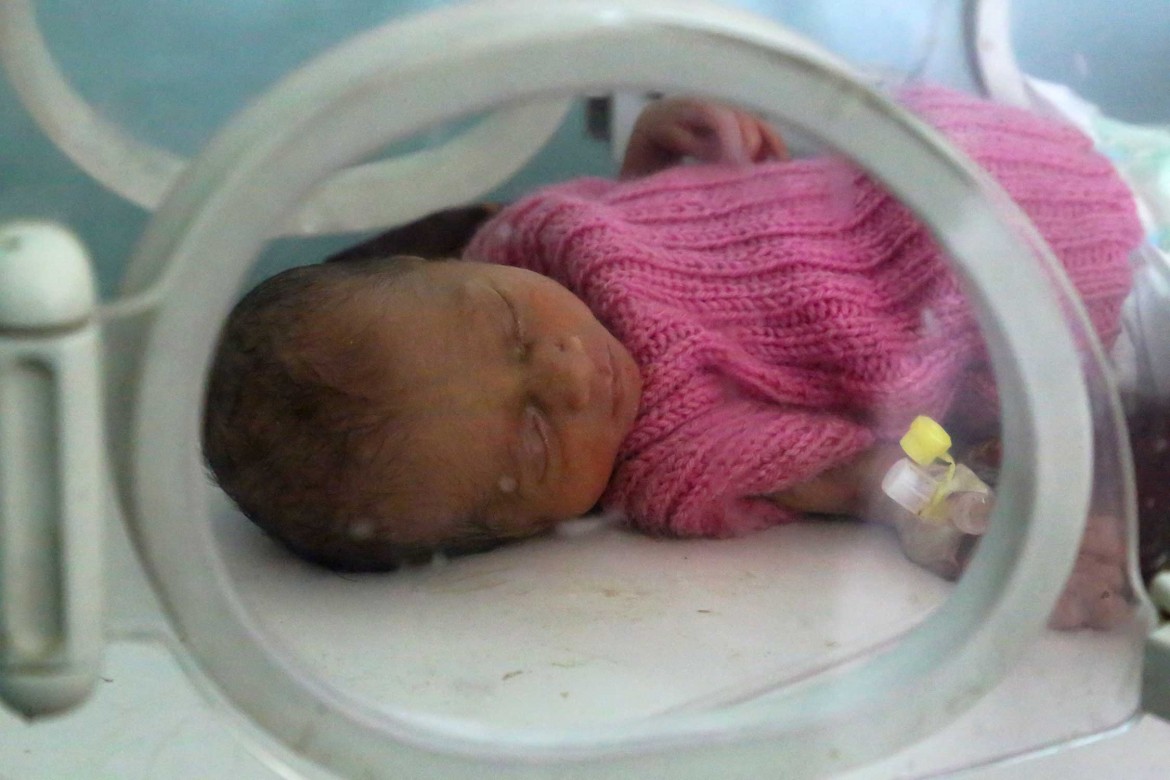 Mirwais Hospital in Kandahar, AfghanistanA premature baby is kept warm in one of the new incubators, wearing a sweater knitted in Norway and brought in by an ICRC nurse.CC BY-NC-ND / ICRC / Thomas Glass
Mirwais Hospital in Kandahar, AfghanistanA premature baby is kept warm in one of the new incubators, wearing a sweater knitted in Norway and brought in by an ICRC nurse.CC BY-NC-ND / ICRC / Thomas Glass Mirwais Hospital in Kandahar, AfghanistanPaediatric nurse Shagofa has been working here for four months and is one of the very few female nurses.CC BY-NC-ND / ICRC / Thomas Glass
Mirwais Hospital in Kandahar, AfghanistanPaediatric nurse Shagofa has been working here for four months and is one of the very few female nurses.CC BY-NC-ND / ICRC / Thomas Glass Mirwais Hospital in Kandahar, AfghanistanMuzalifa, 6 years old, suffers from bronchial asthma.CC BY-NC-ND / ICRC / Thomas Glass
Mirwais Hospital in Kandahar, AfghanistanMuzalifa, 6 years old, suffers from bronchial asthma.CC BY-NC-ND / ICRC / Thomas Glass
The new paediatric ward at Mirwais Hospital in Kandahar opened in September 2016. The renovated facility stands proudly in the hospital compound, among trees providing welcome shade from what has been a blisteringly hot summer. Even as the last drop of fresh paint dries, young patients are wheeled from the old ward into the new one.
The old paediatric ward was located in the main structure of the hospital compound, with 93 beds on the second floor of the building. Most of the beds had to be shared by at least two patients. The new paediatric ward is a stand-alone building, with 157 beds spread over three floors. More space means proper isolation areas for children with highly infectious diseases, such as measles, tuberculosis and meningitis. There is also a day-care unit for those suffering from thalassemia, an inherited blood disorder – very frequent in southern Afghanistan – that requires frequent blood transfusions. But the pride of the new ward is the 30-bed neonatal unit, which has 11 incubators, 6 warmer cots and state-of-the-art equipment. Babies, especially those born prematurely, receive top-quality care, while at same time there is space for their mothers to learn to breastfeed and adopt healthy maternal habits.
This is a cause for celebration. The long-awaited renovation of what was once a nursing school has resulted in a larger facility whose sole purpose is to provide children with the free medical care they so desperately need. Considerable efforts were also made to increase staff and equipment.
Yet there has been no time to celebrate. Within a month, the new, larger ward was already full and new patients kept arriving from all the provinces in the south. "Receiving new patients and being able to help them is the best part of the job," said Shagofa, a female paediatric nurse working in the neonatal unit. "We're very happy with the new ward, but we're already looking forward to having more equipment and facilities, as we're already overcapacity."
While in the end there has been no time to celebrate the opening of the new paediatric ward at Mirwais Hospital, the successful treatment of each and every child is a celebration in itself – for the paediatric staff like Shagofa as much as the patients' families.
See also :

